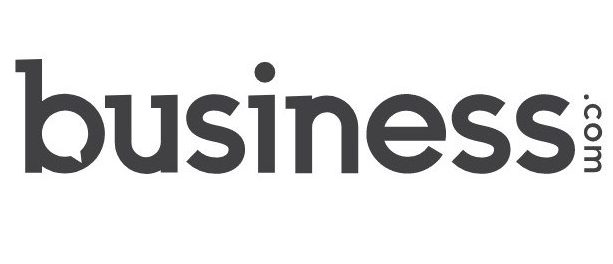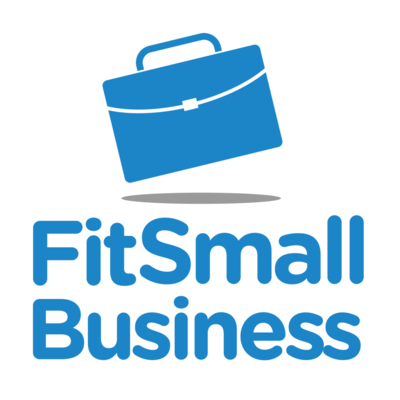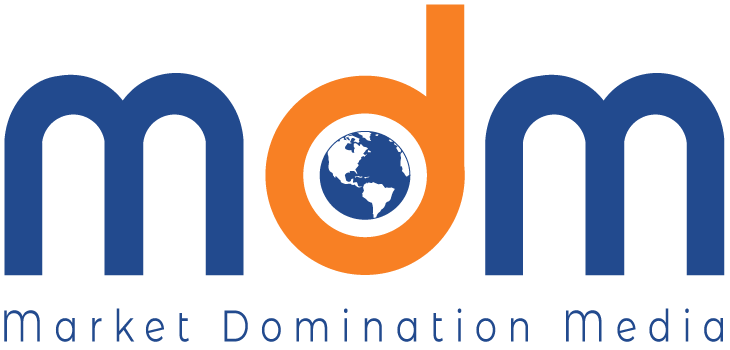Tip of the Law – Building Successful Cross-Sell Strategies | Angela Pandolfo Roy
Date: May 24, 2024
In this episode of Tip of the Law, Joe Giovannoli and Angela Pandolfo Roy discuss cross-selling strategies for law firms.
Angela Pandolfo Roy, Chief Marketing Officer at Gibbons P.C., joined marketing executive and 9Sail founder Joe Giovannoli on the Tip of the Law podcast for a discussion on cross-selling strategies for law firms. As a veteran of in-house marketing roles and now leading a large firm’s efforts, Angela provided valuable insights from both perspectives.
One key point that she emphasized is understanding how partner compensation works. If origination credits don’t properly incentivize referrals, it poses a challenge. Firms also need thorough knowledge of their own services and clients’ needs to make effective matches. Both formal programs led by marketing and informal attorney networking are viable, depending on resources.
Regardless of approach, building good internal relationships is paramount. Attorneys won’t want to refer clients to colleagues they dislike. Courtesy and responsiveness go a long way both within and outside the firm.
When considering opportunities, Angela’s “tip of the law” centers on working smarter, not harder. So-called “low-hanging fruit” like employment law, real estate, and cybersecurity are naturally relevant to most clients, and because of their ubiquitous nature, these busy practices provide easy entry points for referrals.
Transitioning into a leadership role like CMO requires shifting from hands-on work to strategic planning. Letting go of tasks now handled by others was an adjustment. Leveraging resources like knowledge management teams provides valuable insights into clients.
Overall, the discussion offered practical tips applicable to any industry involving cross-functional sales. Whether through formal programs or informal efforts, understanding compensation, services, client needs, and internal relationships are key to any successful cross-selling strategy.
Key takeaways:
- It’s important to understand partner compensation structures and how they may or may not incentivize cross-selling. This could present an obstacle to cross-selling efforts.
- Firms need to have good knowledge of what services all practice areas offer and what client needs exist in order to effectively match clients to other relevant services.
- Both formal, marketing-led cross-selling programs and informal attorney efforts can be effective, depending on the firm’s resources and goals.
- Building good internal relationships is crucial for attorneys to feel comfortable cross-selling each other’s services.
- “Low-hanging fruit” practice areas like employment law, real estate law, and cybersecurity are naturally relevant to most clients.
- Transitioning to a leadership role requires taking on more strategic planning responsibilities while letting go of hands-on work.
- Leveraging knowledge management resources can provide valuable client insights and opportunities for cross-selling.
Episode Transcript
Joe Giovannoli
You’re listening to the Tip of the Law podcast where legal insights meet practical advice. In each episode, we bring you stories, insights and tips straight from the legal industry’s brightest minds. I’m your host, Joe Giovannoli, founder and CEO of 9Sail, and joining me today is Angela Pandolfo Roy, CMO at Gibbons PC, a full service New Jersey-based law firm well known for working in the real estate and corporate sectors. Angela is an esteemed legal marketer and a proud member of the Legal Marketing Association. Without further ado, let’s get into it. So, Angela, how are you today?
Angela Roy
I’m good, Joe, how are you doing?
Joe Giovannoli
I’m doing great, doing great. Don’t be nervous. This is gonna be a good time. We’re gonna have some fun with this. So, I start every podcast the same way. Tell us one interesting fact about yourself that people may not know.
Angela Roy
Hmm. One interesting fact about me is that my very, very favorite type of music is punk music. And I am a solidly middle aged hockey mom. And that really kind of freaks people out that I still go to concerts with mosh pits. And, you know, music so loud that I have to have your plugs in and I cook and bake to, you know, old 70 CDs from like the birth of punk in New York. And so yeah, people think that’s weird. And I don’t know a lot of other hockey moms who like this much.
Joe Giovannoli
That’s awesome. Now how do you, are your kids into punk? Like, have they, have they adopted this love for it? Or?
Angela Roy
No, I have one son who dislikes all music. And one son who loves music up until about 1980 even though he’s 18 years old, so they have nothing to do with my music. But at one point I did take them to– because it was too good to pass up– I took them to a concert, Dropkick Murphys and Rancid together on stage. And I made them come. They were embarrassed. They had a good time.
Joe Giovannoli
That is awesome. That’s really cool. My father in law happens to be a Dropkick Murphy fan as well. So that’s awesome. That is something I didn’t know. And I’ve known you for quite some time. So thanks for sharing that.
Angela Roy
Oh, you’re welcome. And the Dropkicks are a very good entree into punk. Like they’re, they’re pop enough and popular enough that people know them. And the music is catchy. But it’s a really good sort of way in.
Joe Giovannoli
It’s a genre I haven’t spent too much time with personally. But I know Dropkick Murphy. And so what an interesting fact. So let’s, let’s talk a little bit about you. You know, you’ve been, you’ve been at Gibbons, and you’re kicking butt and taking names. What made you get into legal?
Angela Roy
I got a master’s in journalism with a focus in corporate communications back in the day, I’ll say. And by the first corporate communications job I could find, and I didn’t have any idea that this would be the case, was that a law firm? It just so happened that it was this law firm. I’ve worked here for three years, I will cop to the years in the mid 90s. And, and was sort of the second person in a two person department. It was the very beginning of law firm marketing. So I think my boss was learning as I was learning. And so we, we did everything, you know, there was no, this is our writing specialists. And this is our CRM specialists. And this is our events, but it was just us. So I learned a lot fast. And, I got recruited and went out to Boston for a job and stayed there for three years as well. So it’s three years in three years. And then by that point, I was married, and we decided to have kids and all of the free babysitting was back in New Jersey. So my husband and I then moved back to New Jersey, and I started consulting, and I did that for, gosh, seven or eight years until and I had I both my kids and it was 2007 the former managing director of Gibbons had remembered me from the first time I was at the firm and he had an opening in his department and he asked around, and he found out that I was looking to work part time but I was back in New Jersey. And he called and he said close up your consulting shop, you can come work for me for you know, two and a half days a week. And I did that for many years until it finally occurred to him that my children have got to be grown up by this so in 2021 I became full time and was promoted to chief marketing officer.
Joe Giovannoli
That is awesome, so he really reeled you back in, he’s like wait a minute yeah have some more time now let me let me bring you back. That’s awesome. What a testament to you as a whole, right, like obviously you know he remembered you know and I’ve loved working with you and just so it’s so great. I love to hear that kind of stuff because I really am a firm believer in the right person, right seat, right organization. And right culture, like, those are things that you don’t pass up and clearly, you know, you guys shared, you shared that with that managing partner and with the organization. So that’s really cool.
Angela Roy
Yeah. And you know, what I, you know, he is, he’s now gone on to other things, and I have a new managing director that I report to, also wonderful. So I’ve been really lucky.
Joe Giovannoli
And it really tends to work like that. And most times it tends to work like that, right, is that, you know, you have somebody that’s great and understands, you know, building out a great team and a great culture, they’re not leaving it in the hands of somebody that doesn’t believe in that. Right. So usually, it’s, you have similarities. So that’s so awesome. And I know and just from knowing you, you know, you know, fantastic mom, you know, going to hockey games, doing all the things, right? And like you, you’ve been part of a company that has a culture of making sure that you do have that balance. And I think that that’s just so great.
Angela Roy
And I have a company that is very, very committed to the New Jersey Devils. So we have a lot of overlap.
Joe Giovannoli
Yep. And that’s actually how we met– we met at a game. Yes, we did. Through a very mutual, your family member, my dear friend. But yeah, that’s awesome. And being a hockey mom has to be great. I just had a son, I can’t wait to be a hockey dad. I’m hoping that we can force him into that. So any tips or any advice on jackets for my wife or things I need to know and having a kid play hockey? I’m all for it.
Angela Roy
Awesome. Nobody minds if you put wine in a sippy cup and use the bleachers and drink during the practices and long games.
Joe Giovannoli
I can’t can’t wait for all of that. But I know my go-to resource. Yeah. So let’s dive a little bit deeper into your role. You know, at Gibbons. You know, I believe everybody has a superpower, whether they define it as their superpower, not as another question, but you know, the thing that they love doing gets up out of bed in the morning, and they’re really excited to dive into it. And it’s something that they’re just so good at. What do you think your superpower is?
Angela Roy
I think my superpower is communications, writing, editing, adapting content, all the different platforms, there are now reusing content, getting the most bang for your buck out of content, all of that is, is I guess, what I would call my superpower. And, of course, it goes back to getting a master’s degree in corporate communications, I’m really happy to say and I don’t think a lot of people get to say this. But you know, my undergraduate degree was in literature and writing my graduate degree was in corporate communications. So I do what I trained for every single day, which is nice. So, you know, as a CMO, I have to do a lot more than the communication side. But I found that communications are a part of everything, though, you know, business development, a strategic plan has to be written well, anything that you do really does require good communication. So knock wood that will remain my superpower by air.
Joe Giovannoli
That’s awesome. So I want to talk a little bit about this, right? Because we have a, we’re gonna have a wide audience of people listening to this episode, and, you know, different job titles, but you know, I think it’s going to span marketing from, you know, coordinator level all the way to CMO. Can you talk a little bit about how your role shifted, and specifically around communications, how your role has shifted from, you know, not being a CMO to now being a CMO, what changes have been made and how you have to look at communications.
Angela Roy
I apply my communication skills now to big multi pronged initiatives. So, so in the past, when I was the Director of Marketing Communications, the CMO would launch a project and would hand over the parts about writing to me and say “write,” and so I would write; now I have to be that person who hands off different parts, and I have to put it all together. You know, one example, I think, is we launched an alumni initiative last year, and there are a lot of parts to it. And, you know, as a CMO, my job was to put together the entire strategic plan for the development and launch and ongoing activity of an alumni initiative. And and you know, we’re involved. Yes, communications. It certainly involves an alumni newsletter. It involves event planning, whether it’s a big gala maybe every other year, for alums or special CLE programs for alums. Events are a big part of it. Research is a big part of it, kind of cross referencing alums with our client list, or cross referencing to find out which alums aren’t yet clients. Which alums could provide referrals where you know, where they worked when they were at Gibbons, you know, there’s a lot going on we have we are working with it, they’re developing a custom portal, so that the alumni directory can be available to all alums. So there’s a lot, you know, there is a lot that makes up this initiative. And I had to do a lot more than the communications part. And I have a great communications team now. So they really, I have one person who basically owns the newsletter, for example. But communications is a part of all of it. So I’m really glad that that was my base. Because, you know, in explaining to our Managing Director, here’s the strategic plan for the alumni program, he can understand it, you know, you know, I actually, you know, I was able to kind of convey what I meant. So, again, communications, thank goodness, were my, is my base, and has helped me as I’ve transitioned to the CMO role. But yeah, that’s, I think that’s, that’s where they were separated, I used to be part, I used to, I used to contribute part of a, you know, a big giant marketing effort. And now I have to think of the marketing efforts and allocate responsibilities for the big marketing efforts and strategize the marketing efforts and pull people in and, you know, track and evaluate. And, you know, like I said, build different pieces of it. So that’s been, that’s been the big jump.
Joe Giovannoli
Awesome. Yeah. And you’ve, you’ve built an exceptional team of people around you, which is also a testament to you. Did you find or do you find that you sometimes because, you know, the old saying “Old habits die hard,” like, do you find that you sometimes get you find yourself getting stuck in the weeds of like, get doing some of the things that you used to do or that you’re, you’re handing off to somebody? And, you know, was that a hard transition?
Angela Roy
Yes, that was very difficult. You know, and I’m realizing it now. Because one of my communications team members is fairly new, she joined in December. So until she kind of gets the firm style down, she’s been asking me just to, you know, just to review what she’s written, and what have you. And I, you know, I’ve, I had gotten used to my director of communications, handling everything, but now that a manager is giving me something to review, I really do have to resist the urge to say, Who but I can I would use this word here. And you know, I’m like, You know what, this is somebody else’s job. I should make sure it’s correct. I should make sure it follows Gibbon style, but it is perfectly articulate, it captures what it needs to say, yeah, it communicates our message. It’s perfect as is, even though I would have done it differently.
Joe Giovannoli
Yeah, sure. And that’s the thing, right? Everybody has their own, you know, you follow brand style and brand voice. You know, everybody could do that. But there’s definitely different flavors that people will add to that. And as long as they follow those brand guidelines, we have a saying here at 9Sail is that, you know, especially for anything internal 80%, as long as it’s 80% or better. We’re all happy with it, right? Because we can always go back to it later and make tweaks and changes if it’s going to be impactful to the business. But if we’re always striving for perfection every single time, you know, you’re never gonna get anything done, because you’re gonna waste time on things that are already good enough, right? And that old, the old saying of like, Oh, good, oh, it’s good enough. It’s good enough. That’s not you know, you don’t want good enough, you want great. Well, you know, it depends on who’s defining that term. But, yeah, I can only imagine that it’s definitely a challenge. And again, you have such a great team around you. So I’m not surprised that you are able to help hand things off.
So we’re gonna take a quick break here. We just wanted to take a moment to acknowledge our sponsor for the Tip of the Law podcast, 9Sail. 9Sail is a law firm-focused digital marketing agency specializing in providing lead generation and awareness-building services, such as SEO, paid search, content creation, and digital public relations. Grow your firm with 9Sail.
So we’ve had some conversations about this. And I think that it’s a good time to talk about kind of cross strat, this cross selling strategy, right? Because it really encompasses the communication side of things, multiple stakeholders, both external and internal, that you have to be communicating with. And I happen to know that you’re very good at this, like you’re very good at strategizing around it. So what are some of the things that the firm needs to consider when building a successful cross sell strategy?
Angela Roy
That actually was good framing because the cross selling will not be successful if you don’t know a few things before you jump into it. And one of the things to know is what your partner compensation structure is like, because in some firms, maybe in many firms, that structure does not necessarily support cross selling. So that is really big, understand how your directors are paid, and you know what they’re paid for. And then you know, spin out some within a range of cross selling strategies, you can figure out where you should be based on that question. That’s one of the questions. A few of the other questions. Of course, you should, you should know is, do I know what everybody else at the firm does? You know, am I very familiar with the other practices at the firm, or, you know, on the marketing side, if you’re in the marketing department, and you get this brilliant idea to start a cross selling program? Well, you have to make sure that you know everything that the firm does. But you also have to know the third thing is, do you know what your clients need, you know, cross selling, by definition is targeting existing clients, it’s cultivating additional work, based on your performance of other work. So if you don’t know, if you don’t stay on top of, you know, what they’re getting sued for outside of your specialty, or where they’re looking to grow outside of your specialty, you won’t know that they could very well be perfectly happy, working with all kinds of different attorneys at your firm. So you really need to know, you know, what’s coming up for your clients, knowledge management, everything I do. I work so closely with our knowledge management team and our IT team. But knowledge management can provide you with a wealth of information about your clients, and you know, what, you know, their court and litigation records for certain years. And they can pull articles from journals that track transactions, and you can find out where your clients have, you know, closed corporate transactions or real estate transactions. So you can find out a whole lot about clients. And that’s important, because that will help you make the push.
Joe Giovannoli
Yeah, and I think you just gave an awful lot of info there. And so there’s two things I’d like to unpack when you talk about knowledge management, especially firms that are smaller than Gibbons. And maybe even some that are larger, may not necessarily understand the concept of that knowledge, knowledge management and what goes into it. So on a very basic level, could you break that down for us as to what you mean by knowledge management? Is it a platform? Is it a group of people? Is it yes to all like, what what is that?
Angela Roy
Thank you, I and I apologize, because I’ve been at the same firm for quite a while now. So. So I think in Gibbons’ language, knowledge management, that is our team, it’s like marketing, we sit right next to– our department is right next to their department. And back in the day, knowledge management was known as the library. But because there are vastly more resources that our reference librarians have to be familiar with and have to manipulate correctly and even know about, they are now knowledge management, it’s just it’s beyond library. Now. There are resources that are available to us, even outside of the library, but we just don’t know about them. They know about them, there are resources that are firm subscriptions that they only have access to. So really, it’s a matter of, let’s just say knowledge management, if you don’t have a team, knowledge management, then is a function, you know, then it’s something that you need to do, you need to figure out where these resources are, and you don’t have to spend a bunch of money, you’d be really surprised what you could learn about clients, you know, without big subscriptions to this, that and the other, but most law firms have some very basic reporting, software programs that would assist anyway.
Joe Giovannoli
That’s awesome. That’s great. Thank you for defining that. And, you know, so I look at knowledge management. And I hear what you’re saying. And I always think, the broad spectrum of sizes of firms out there, and what some of the things that they will have accessible to them, as you kind of just alluded to, if you don’t have a team for that, you know, it’s kind of your responsibility, but how much of that actually also falls on some of the partners to kind of collaborate, right, like, your job is that they CMOS job to put the minds in the same room to have a conversation or, you know, is there another way to go about doing that?
Angela Roy
That’s a fantastic question, because I think we could kind of split this into two different approaches. If you do have a you know, if cross selling is encouraged at the firm in one way or another, if there are not a lot of obstacles to cross selling, and you do have a lot of resources, I would very strongly recommend that marketing lead a formal cross selling effort where you’re getting spreadsheets comparing, you know, list of clients to, you know, where they’ve been sued in the past year to what have been their big transactions in the past year, et cetera, et cetera. You know, and actually using the spreadsheets to cross, physically cross, which is kind of funny. Um, that would be, though, you know, that would be something that requires a pretty solid marketing department. And again, you know, a decent amount of resources outside the marketing department and firm, vocal for backing, I would say, but there are a lot of things that attorneys can just do themselves that, you know, you know, personally asking knowledge management, just just with their own clients, you know, just knowing what their own client to doing or on the flip side, knowing what their best, or their closest colleagues outside of their practice area are doing, you don’t have to keep on top of every single firm client or the top 100 firm clients, if you’re an attorney, and you want to cross sell, you want to cross sell your colleagues services, or you would like your colleagues to cross sell your services, that’s just a matter of dealing with your world of knowledge. And the clients that you know about. was, I forgot the question.
Joe Giovannoli
The question was, is it always on marketing to bring that strategy together?
Angela Roy
Right. So some of the ways that attorneys can work one on one with the marketing team or a practice group can work one on one with a marketing team is to, you know, have them work with them to develop really, really solid write ups? You know, save everything you could. I’ve arranged presentations at Partners meetings. We haven’t had a firm retreat in a while. COVID really kind of got in the way of those but we used to have real big ones. And cross selling was always a big part of it. But it was again, it was just introducing people to other groups that the firm partners luncheons are a really good way to do that. Like I said, firm retreats are a really good way to do that. One thing we did, it was sort of part of a bigger celebration, but we made a video about the firm. And we realized in that video, there were a lot of practice group leaders, summarizing really well what it is they did. So we took those parts of the video and we actually had a cross selling video, which was kind of cool. That was,these are our practice areas. These are the leaders of those big practice areas and they’re going to tell you exactly what not only what their teams do, but why clients should hire their teams and why their teams do it, in our opinion, better than other lawyers do it.
So, um, so, you know, communications is a really good way and marketing, you know, we solicit that now, you know, now we ask people, we have a newsletter and we ask people, because if you don’t, you know, they might not do it. So, write up, you know, this will be an entirely confidential newsletter, but we’re going to send a newsletter out quarterly that reports on the firm’s significant achievements, the last quarter. Yeah, and we, so we send that out for people to read and peruse and sort of keep as a resource. But at the end of the year, what we do is we compile all of those matters into a spreadsheet. And we set up the spreadsheet, almost like a database, so that the columns are, you know, they can be sorted by different columns containing different kinds of information. Or people can just do keyword searches or whatever. But we always keep in one place a spreadsheet with five tabs, one for each of the previous five years. And then, you know, at the beginning of January of every year, we circulate that master spreadsheet to all attorneys, so that they have them in one place. They know, they know the matters that Gibbons was most proud of, for the past five years. And, again, they can’t necessarily send a write up directly to a client. But it really does help them know it. And sometimes if they need to send information to a client, they know who to ask to expand on what they felt in the spreadsheet.
Joe Giovannoli
And it helps them, I imagine it helps them to craft the messaging to the potential client that they there may be an opportunity to cross sell to it helps them to have maybe some some more vague, but talking points that will help them to, you know, kind of earn the trust of their client in another area, which I think is I think that’s important, too.
Angela Roy
Yeah, you know, I just thought of something that lawyers should do, always, without marketing. Be courteous to your partners, you know, make sure you have good relationships with your colleagues– they will not want to sell you to their clients if they think you’re a jerk. So always, if you’re interested in cross selling your service, or having your services cross sold, make sure that the people who would be doing that selling think highly of you and be responsive and be available and treat their clients as if they were your clients, of course. But yeah, so there are some things that are just basic and foundational. But you wouldn’t believe how many people forgot to do it.
Joe Giovannoli
Yeah, and you know, I want to highlight, you said so much good stuff there. And I just want to highlight a couple of things. So one, the attorneys at firms, and let’s say even marketers, too, because I think it’s just everybody, you have to remember that the people internally are just as much clients to you as the people externally. Right. So, you know, especially with most firms having compensation structures that are built around origination, and if somebody’s going to bring another attorney into their client for another service, like they’re getting origination credit, now some firms have it where it splits, some don’t. But you know, it’s really important that you don’t burn bridges, and you don’t create enemies internally, because that can be the person standing in the way of a pretty decent size and pretty high, highly named client. Right. So I think that that’s one big thing I took away from what you said. And I think the other thing is that, you know, there should, there should be somebody on a regular basis that’s looking at the firm’s top clients, and figuring out where their shortcomings are, where their blind spots are things that maybe they’re not covering for this client that they could offer. Right?
Angela Roy
Absolutely. And in that case, that’s where marketing comes in. And that’s sort of a more formal approach, because, you know, you do need the resources to, you know, to pull all of that information and to do all of that referencing So, yeah, that’s a way to loop in marketing to kind of guide the process. One of the things that always my biggest advice, maybe I should save this for my nugget–
Joe Giovannoli
Go ahead, share, share, share your tip, get ahead.
Angela Roy
Alright, so here’s my tip. There’s some really low hanging fruit at almost every mid sized law firm. I mean, delicious, excellent, ripe, wonderful fruit, but low hanging, you know, every client by and large, not every single one but the vast majority of our clients have employees. So cross selling your employment attorneys should be a no brainer. Yeah, almost. Almost all of our clients have physical facilities now probably, you know, less so than then before COVID. But, you know, it’s certainly rebounding to a certain extent. So if your client has physical facilities, some kind of real estate need will likely arise at some point. So your real estate attorneys are right there. If any of your clients have technology, and they all do at this point, cybersecurity is a huge issue. Well, we have a privacy and data security team that we could, we could literally refer to every single client that we have cybersecurity, it’s even a risk for individuals, you know, not just companies. So, yeah, so there’s there, there are all kinds of work that every single client needs and start there, that would always be my guest start there. Those actually, you know, they tend to be pretty busy practices, but, you know, should they need and launch additional work, you can easily provide it.
Joe Giovannoli
Yeah. And I mean, at the end of the day, it really, it just is also another, you know, foot in the door, right, and expands the relationship. So, you know, yeah, sure, one day, maybe the focus is to get employment law. And the next day, it’s, Hey, all of these folks own buildings, all of these companies own buildings, we’re gonna, we’re gonna get our real estate practice in there and make an introduction, because down the line, maybe they needed help with negotiating a lease or whatever, right. But, you know, even if you just took a, hey, let’s take this practice for this quarter, and let’s figure out where we can plug this practice in with our clients. And if you just went, you’d be busy infinitely. Right? And, you know, pardon the expression, but I’d rather shoot fish in a barrel than shoot into an ocean, you know what I mean? Right? Like, you know, the fish are there, right? And you have these clients, you might as well build the relationship, it’s a little bit of a, you know, off color analogy, but, you know, if you have a small pool, and you know that there’s a ton of fish in there, why not try to pull the fish out of there rather than, you know, sitting and having the line in the water, right? So you have to do all of those things. And coming from an SEO guy, right? Like, that’s where we’re fishing the ocean, right? We’re trying to make sure we’re trying to get new people in the door, we’re trying to validate the firms. But, you know, all the while you have, you have a whole pool of people that you could be selling to completely and utterly, just super focused, right.
And one of the things that I always say to finances, we know when we talk at the end of the year about results and how things went, and, of course, we’re reporting to them on a monthly basis. And but we look at a roundup of, okay, what’s ROI looked like, or, you know, in for the firms that don’t have a true track of it, maybe its return on objective, because they don’t know it, every detail of every dollar that was spent by every lead. But one of the things I tell them, as I said, Are you taking into consideration who these people refer to you, you know, that you got somebody from an online source that became a client? Did they refer you to anybody? Did you ask them to refer you to anybody? And, you know, how do you build that into your model to understand where business is coming from? And how do you leverage that to figure out who you’re going to ask for what, what referrals? Right, so cross selling, I think is just so incredibly important. And thank you for the tip, because I think that that is, that’s something that most firms aren’t really thinking about is like, being courteous and, you know, building. And it’s, and it’s hard to say, but, you know, building out relationships internally is just as important as building relationships externally.
Angela Roy
Absolutely. And I’ve been doing this long enough that over the course of my career, I have come across horrible people who are horrible to everyone around them, and had their little, you know, they had their cocooned practice, and they did their thing until finally they went away. And, you know, never didn’t make an effort to be part of the firm. And, and that, that all, you know, obviously, gets really in the way of, of course.
Joe Giovannoli
Yep. Yeah. So, so awesome. And again, thank you for that. Before we let you go, because we’re at the top of the episode. Anything else that you want to leave the audience with that you feel we didn’t cover today around cross selling?
Angela Roy
Oh, yeah, there are probably a few different things. One of the things to remember is that it doesn’t always have to be lunch, you know, you don’t have to say okay, I’m going to put you in the same room together. And that’s how you’ll meet. A really good way to cross sell your firm’s services is if somebody writes a blog or publishes an article that addresses an issue that you happen to know one of your clients is facing or will face and just forwarding that and saying, Hey, I know that You know, X is going on in your industry or at your firm, my partner wrote about that. And this article kind of offers a good summary and some decent solutions. And you should, you should read this. And if you have any questions, I’d be happy to connect you with him or her, it doesn’t have to be okay, you want me to sell your services, let’s plan a lunch and let’s see, he’ll come with us and, and et cetera. That’s one thing that you can find ways to cross sell, that you’re comfortable with, you don’t have to, you don’t have to come outside your comfort zone too much if you don’t want to.
And another thing I would say is, well, if a client comes to you, and actually asks you to refer one of your partners, both you and that partner have to do homework, and I have to do homework anyway. But just because the client says, hey, you know, we’re, you know, I think that this one guy that we let go is going to sue us. And it’s going to be a little sticky, because of the payment, or whatever. You know, before you refer that client to any of the employment attorneys at your firm, get the details about the circumstances, make sure that that attorney makes sure you’re matching the attorney with someone who could, you know, who could do that, who could handle it, it’s in their wheelhouse. And then really prep the person that you’re referring to spend a lot of time with them. Talk about what you know, even about the clients budgeting, you know, how they, you know, where you get pushback in terms of bills, and what have you, you know, there are a lot of considerations in client relationships. So before you invite one of your colleagues into a client relationship, you and the colleague need to know as much as you can about each other and about the client.
Joe Giovannoli
Those are both so valuable and what you’ve said today applies to any industry. Like I don’t know that there’s very much that you’ve said today, that’s just, you know, it only applies to the law firm, like any anybody from any industry that owns a business or works in a business that’s responsible for business development, like everything you said, is so incredibly important, especially for the companies that have, you know, multi channel, multi, you know, multiple products, multiple offerings that they’re providing it, everything you just shared is just so incredibly valuable. So I appreciate you. As always, I appreciate your time. And I want to thank everybody that listened to this episode today. If you’ve enjoyed this, you know, please follow along. We release these episodes on a weekly basis. Thank you for listening to the Tip of the Law. Have a good day.
Thank you for tuning in to the Tip of the Law podcast, hosted by Joe Giovannoli. If you’ve enjoyed today’s episode, be sure to subscribe to Tip of the Law and leave us a comment wherever you listen to your favorite podcasts. You’ve been listening to Tip of the Law.















